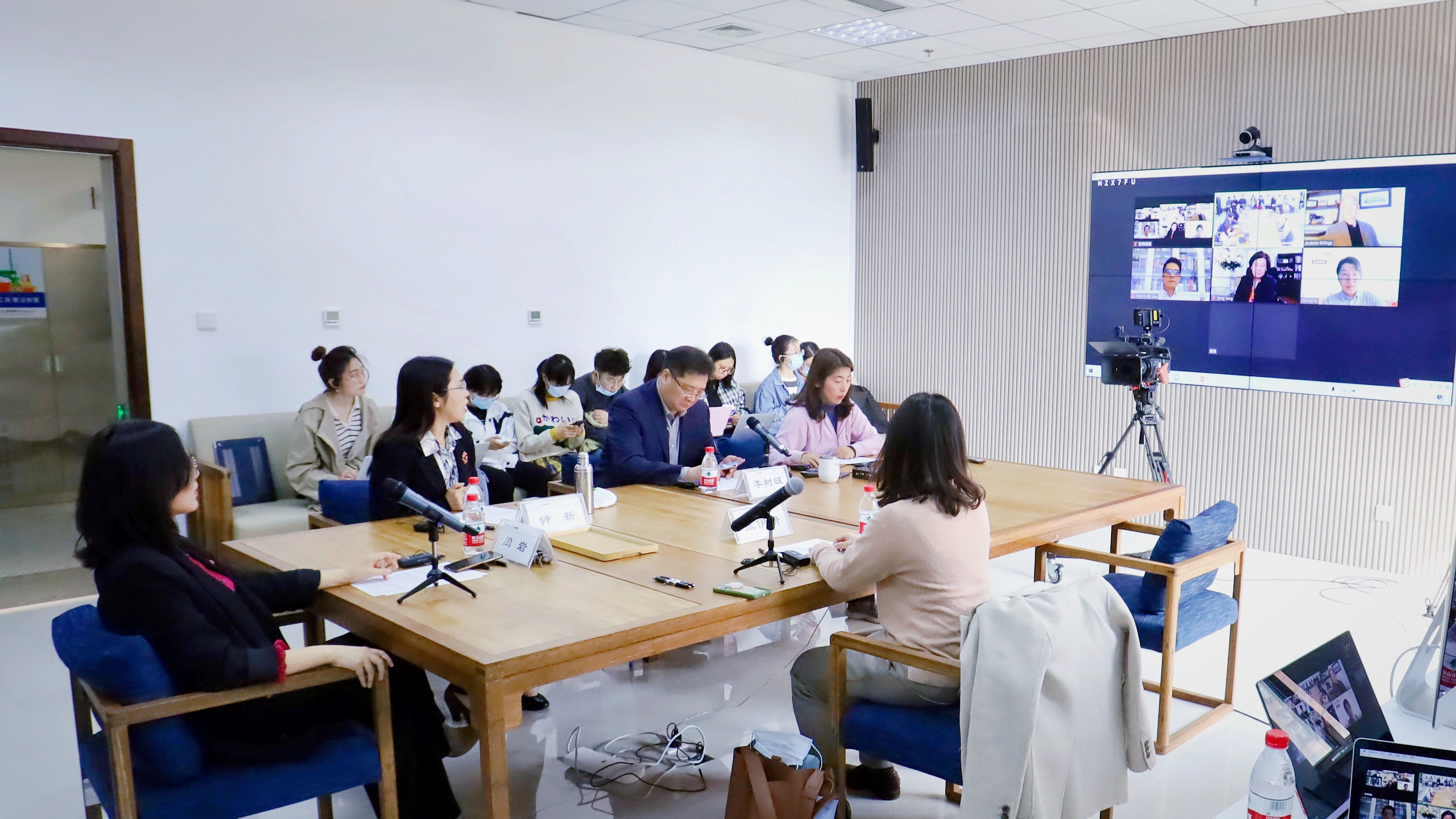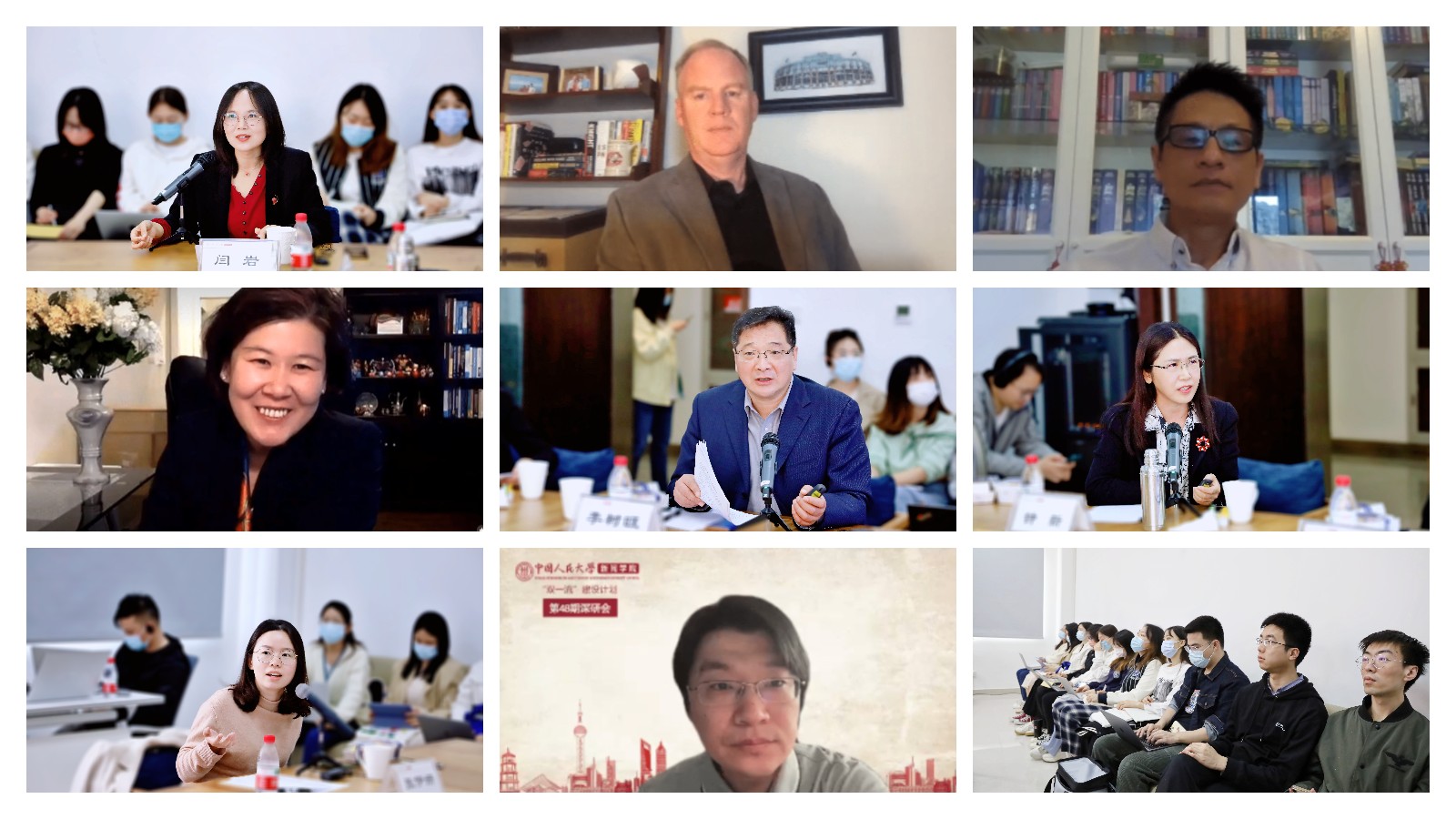History was made during the Olympic Winter Games Beijing 2022, with athletes and audiences contributing to record-breaking performances on and off the snow and ice. Data from the IOC shows that the Beijing 2022 Opening Ceremony achieved the highest global audience reach ever for an Olympic Winter Games Opening Ceremony.
How are the Olympics broadcasted in different countries? How do sport fans consume the Olympic Games on different platforms? How does the Olympic Games help to bring the entire world together?

With many students serving as volunteers in the Olympics and scholars doing research on sports communication, SJC hosted a seminar discussing what role sports plays in intercultural communication with researchers from all over the world on Apr.10th. Professor Yan Yan, Associate Dean of SJC hosted the seminar which was streamed in full on SJC’s official Wechat video account.

Dr. Billings made contrasts between Winter and Summer Olympics and on Olympics broadcast between the US and China.His findings show that Summer and winter Olympics have vast differences in costs of hosting, nations participating, host nations bidding, media rights costs and number of events. The US and China also differentiate with each other in type of broadcaster, type of commentary, athlete familiarity, amount of coverage and viewership. For instance, “If you were to watch every single minute of Tokyo Olympics coverage, it would take roughly ten months; for Winter Olympics, it’s two and a half months. Producers have todecide what content to include and exclude.” He said. As theDirector of the Alabama Program in Sports Communication, Andrew Billingshas studied Olympics Games for over 25 years, considering the Olympics as a lens of understanding nationality, gender, and race.
Dr. Wing-Chung LAU drew on extensive in-depth interviews to provide a rich account of how the IOC’s gender equality policy influenced Chinese elite volleyball. His finding shows thatChina has made progress in gender equality in terms of the same number of athletes and competition opportunities for men’s and women’s sports teams. Besides, the basic salary, training benefits, and living conditions for men’s and women’s volleyball teams are equivalent. He demonstrated while women are often not in the important coaching positions, women make up the vast majority of mid-level administrative officials. He said sport is a powerful platform for promoting gender equality and we should make use of it to build a more inclusive society.LAU is a Professor of Department of Sport, PE and Health in HKBU.
Dr. Tang Tang looked back and reflected on her 14-years longitudinal research on Olympics viewing. To investigate what factors could predict Olympics viewing, Tang conducted online surveys during the past 4 Summer Olympicsperiods. Some variables have been measured each time such as preferences, sports fandom, general media use routine, othershave been added in as technology changes the media industry, including geolocation, simultaneous media use and viewing context. Her research shows that although new media is emerging, Olympics on TV was still a choice of the medium which is driven by endogenous preferences. However, the emerging streaming service reflected greater audience agency, and their needs for diversity, expertise, personalization and convenience.Tang Tang is a Professor School of Media and Journalism at Kent State University.
Humanistic Olympic Studies Center Executive Director Shuwang Li demonstrated how Olympics as a sports event promotes the exchange between western and eastern culture.He said traditional Chinese sports are introduced to the world and popular sports in the west are enjoying moreprevalence among Chinese people too. Besides, Li summarized the legacy Beijing Winter Olympics has left into the future, such as the experience of organizing big eventsamid the pandemic and post-Games use of 2022 venues. Li also shared some strategies of telling Chinese sports story to the world, such as taking the advantagesof foreign athletes, influencers and local elites.
Professor Zhong Xin from SJC provided a view into Winter Olympic slogans. Zhong demonstrated howthe theme of Winter Olympics slogans changed from “gathering at the same time and space” to “flame” and “passion”. By analyzing international media’s coverage on Winter Olympic slogans, she found that they conveyed ideas of “taking a right approach to justice and interests” “openness and inclusiveness” “shared future”.
In the Q&A session, some questions were discussed further, such as how viewing habits changed during the Covid-19 pandemic, how AI and VR would change Olympics broadcasting and viewing rate difference among different age groups. Di Zhang, Director of International Journalism and Communication Department of SJC wrapped up the seminar and expressed his appreciation for experts’ participation. “Winter Olympics is a golden opportunity to promote public engagement of winter sports and stimulate the upgrading of the ice and snow industry in China.” Zhang said.
Translator:Yu Xiangjun
Editor:Zhao Jin,Wen Yingying



